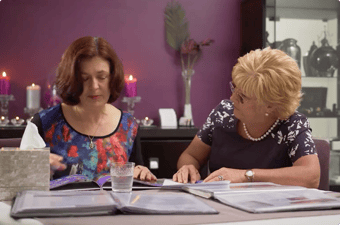Losing a loved one is difficult. So when you also have to help your children through the loss, it can feel overwhelming.
How can you help your children understand what they’re feeling?
Well, the first step is to make sure they understand what’s happened. Depending on the age of the child, you may have to explain how death means your loved one won’t be coming back.
Make sure to speak openly about your religious beliefs as well.
You can’t speak around the issue, especially with young children. It’s very easy for younger children to take your words literally. Tell them exactly what’s happened.
Expect your children to keep asking questions even after you’ve explained everything. It can be difficult to grasp death at a young age. They’re also dealing with feelings that are new and uncomfortable. When they ask questions, listen to what they’re really asking. They might just need you to tell them that everything’s going to be all right.
There is also a stage of development when children misconnect cause and effect. They may think that something they did caused the death, or that they can do something to undo it. Gently explain that they aren’t responsible.
Your older children will obviously have a more mature view of the situation than your younger children.
Teenagers fully understand that they’ll live the rest of their lives without seeing their loved ones. It’s easy to think that your teenagers can handle their grief on their own, or at least that they’re doing as well as possible.
Make sure to talk to them about grief. Share your feelings, and encourage them to open up as well. Like younger children, they may blame themselves. And like some adults, a loss may cause them to search for meaning and purpose in life. Help them speak about their feelings.
Whatever the age of your children, the important thing is to speak openly about death, grief, and what they’re feeling.









